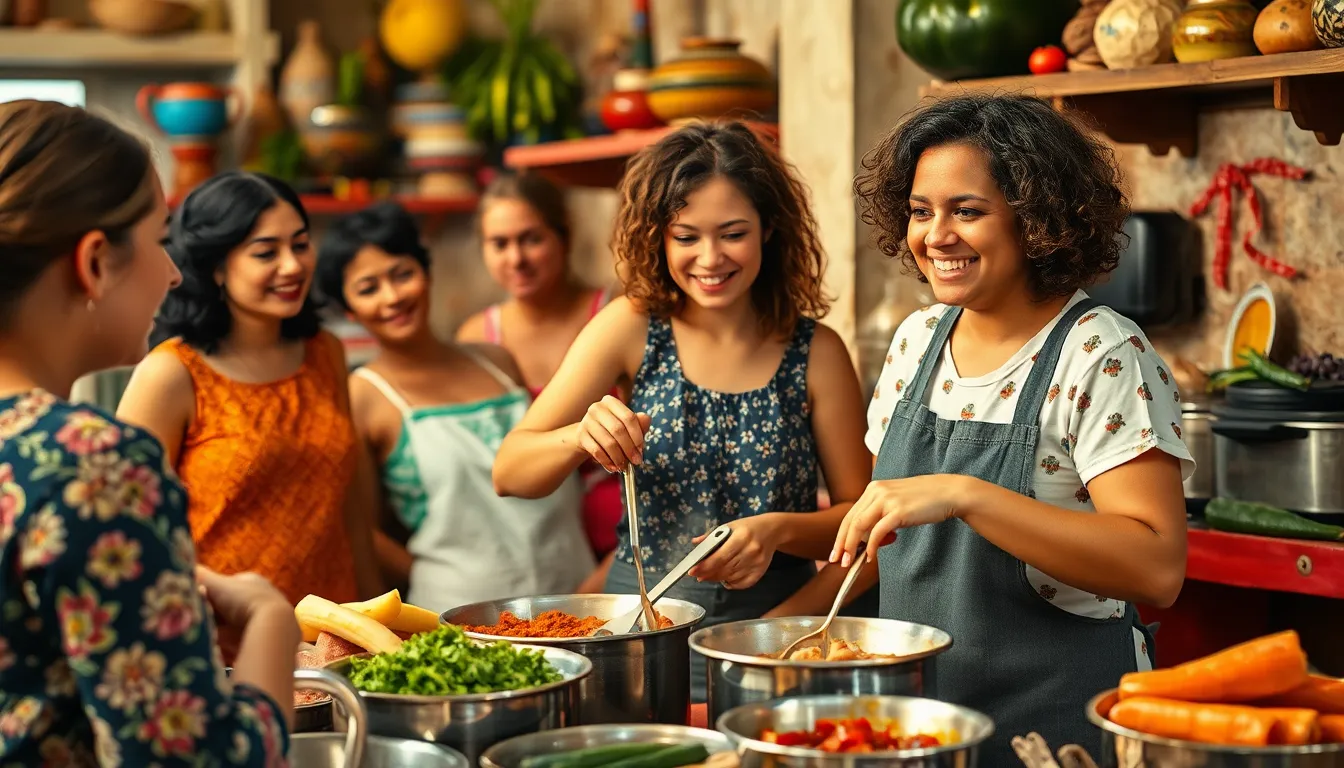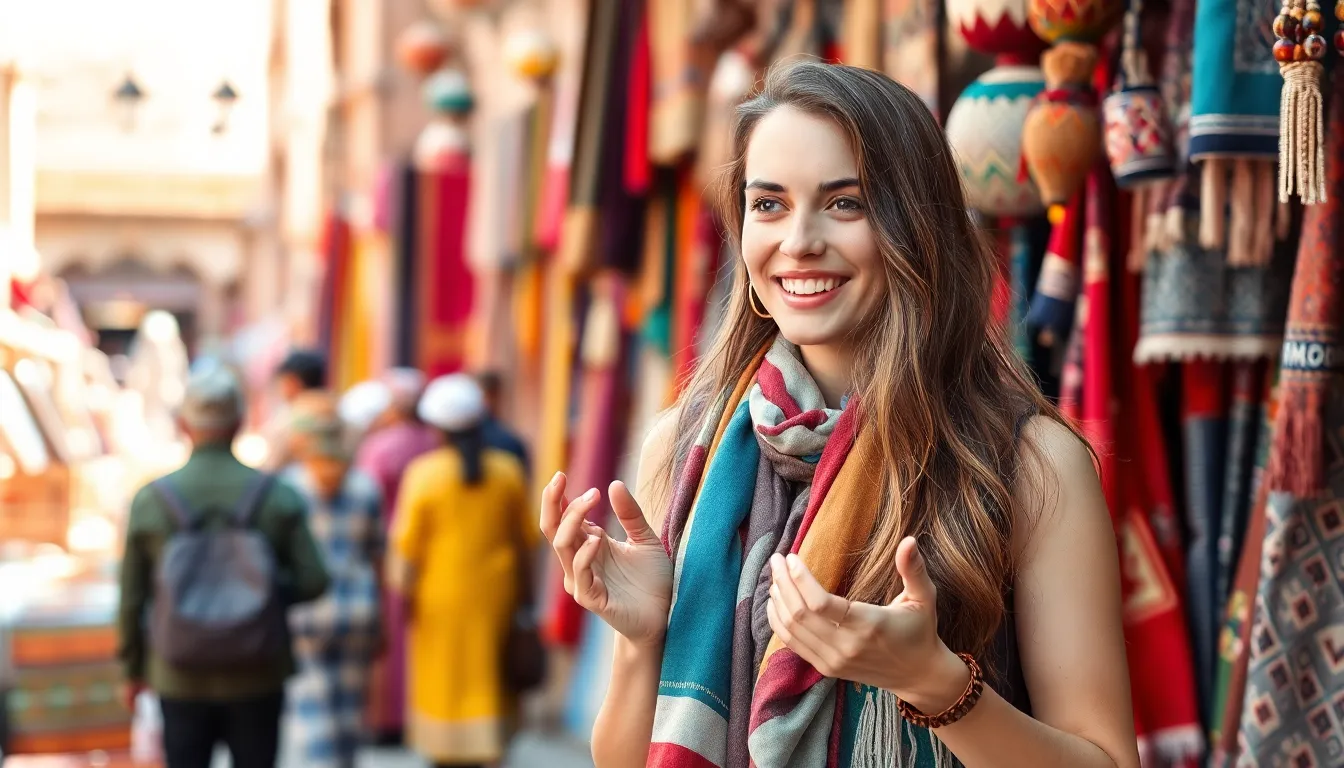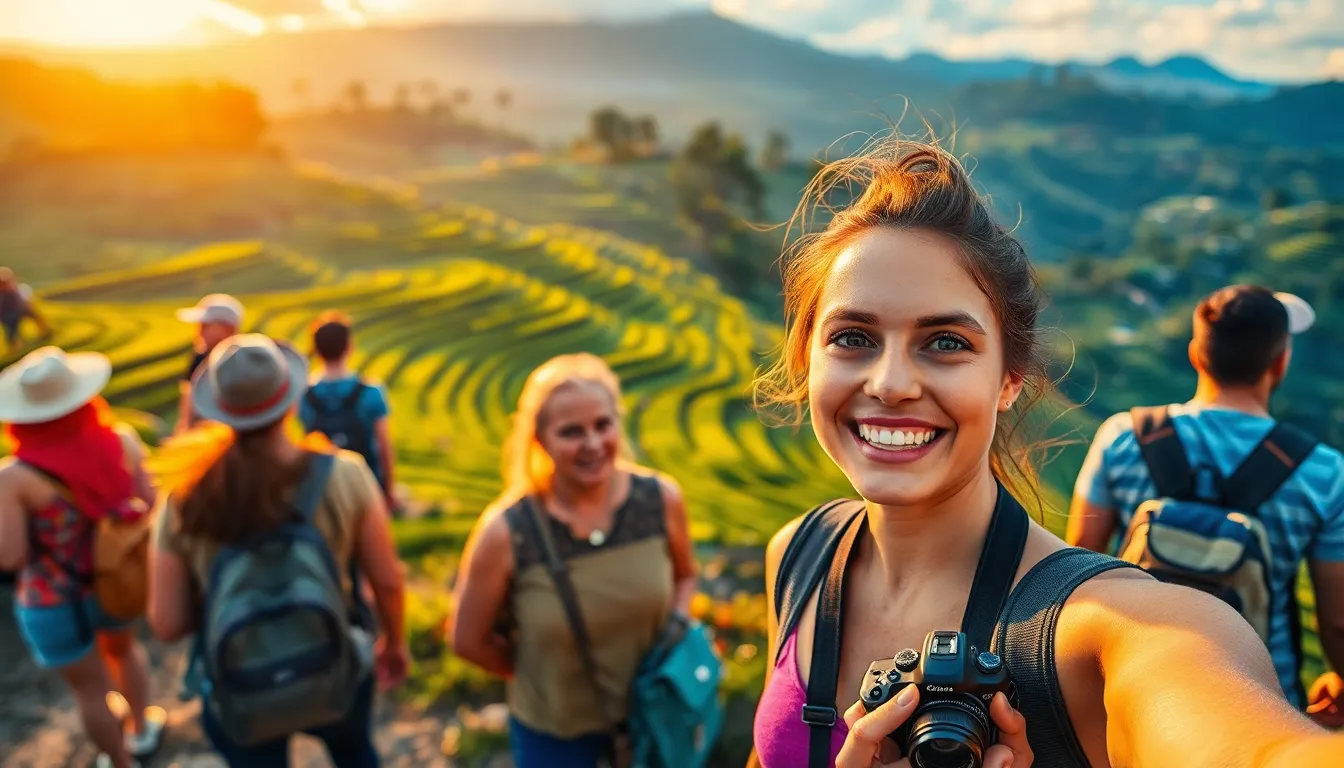Traveling isn’t just about visiting new places; it’s about immersing oneself in diverse cultures that shape our world. Culturally rich travels offer a unique opportunity to explore the traditions, art, and history of different communities. Whether it’s savoring local cuisines or participating in traditional festivals, these experiences foster a deeper understanding of humanity.
In a globalized society, the value of culturally rich travel has never been greater. It encourages meaningful connections and broadens perspectives, allowing travelers to appreciate the beauty of diversity. From the bustling markets of Marrakech to the serene temples of Kyoto, each destination tells a story waiting to be discovered. Embracing these journeys not only enriches the traveler but also supports the preservation of cultural heritage worldwide.
Table of Contents
ToggleWhat Are Culturally Rich Travels?
Culturally rich travels encompass journeys that prioritize immersion in local cultures, traditions, and histories. Instead of merely visiting tourist attractions, culturally rich travelers seek authentic experiences that connect them with the essence of a destination.
Experiences in this realm include participating in local festivals, tasting traditional cuisines, and engaging with indigenous communities. For instance, travelers in Marrakech can explore the vibrant souks, while those in Kyoto can attend tea ceremonies that highlight Japanese hospitality.
Culturally rich travels also promote sustainable tourism practices. By choosing local guides and supporting small businesses, travelers contribute to the preservation of cultural heritage and economic stability in the areas they visit.
Overall, culturally rich travels represent a deeper approach to exploration, emphasizing the value of understanding diverse ways of life and fostering connections among people.
Benefits of Culturally Rich Travels

Culturally rich travels offer numerous advantages that enhance the travel experience. These journeys foster personal growth and broaden perspectives, allowing travelers to appreciate the world’s diversity.
Personal Growth
Culturally rich travels foster significant personal growth. Travelers often experience increased confidence through overcoming challenges in unfamiliar environments. Engaging with diverse cultures promotes self-reflection, enabling individuals to reassess their beliefs and values. Participating in activities, such as traditional crafts or cooking classes, enhances skills and builds new friendships. These connections create lasting memories and deepen the traveler’s emotional intelligence.
Understanding Diverse Perspectives
Culturally rich travels cultivate understanding of diverse perspectives. Exposure to different customs, languages, and traditions allows travelers to see life through their host’s eyes. This exposure often debunks stereotypes and fosters empathy, highlighting shared experiences among people. Traveling in culturally vibrant destinations encourages open dialogue, enabling participants to discuss global issues and challenges. Through these interactions, travelers gain insights that can influence their views, leading to a more tolerant and informed worldview.
Popular Destinations for Culturally Rich Travels
Several destinations worldwide offer unique opportunities for culturally rich experiences. These places enable travelers to engage deeply with local traditions and customs, enhancing their understanding of diverse cultures.
Historic Cities
Historic cities serve as vibrant tapestries of culture and history. For instance, Rome, Italy, showcases ancient architecture and art, from the Colosseum to the Vatican. Visitors can explore ruins, museums, and engage in local culinary traditions like pasta-making classes. Istanbul, Turkey, combines East and West, featuring the stunning Hagia Sophia and the Grand Bazaar. Travelers in Istanbul can experience Turkish baths and enjoy the rich flavors of traditional cuisine, including kebabs and baklava.
Other notable cities include Lisbon, Portugal, renowned for its fado music and historical neighborhoods like Alfama. Mexico City, Mexico, presents a unique blend of ancient Aztec culture and modern urban life, with sites like the Templo Mayor and vibrant street food scenes. Immersing oneself in these cities allows travelers to appreciate the layers of history and tradition that define them.
Indigenous Communities
Engaging with indigenous communities offers profound insights into cultures often overlooked in mainstream travel. For example, the Navajo Nation in the United States provides opportunities to learn about Native American traditions, art, and storytelling. Visitors can participate in craft workshops and guided tours to experience the landscapes that hold cultural significance.
In New Zealand, Maori communities invite travelers to learn about their customs, language, and traditional practices. Experiences include participating in a traditional haka dance or enjoying a hangi feast, where food is cooked in an underground oven.
The Maasai community in Kenya and Tanzania also exemplifies rich cultural engagement. Travelers can visit Maasai villages, witness daily life, and learn about their customs and traditional attire. These interactions promote respect for diverse ways of living and contribute to the preservation of cultural heritage.
Tips for Planning Culturally Rich Travels
Planning culturally rich travels involves careful research and a genuine interest in understanding local customs. Travelers benefit from being well-prepared to ensure immersive experiences that resonate deeply with the essence of the destination.
Research and Preparation
Researching the historical context and cultural norms of a destination enhances the travel experience. Travelers should investigate local traditions, festivals, and culinary practices to identify key cultural activities. Opt for reliable sources like travel guides, documentaries, or reputable travel websites to gather information. Creating an itinerary that prioritizes cultural sites, such as museums, art galleries, and heritage sites provides a framework for deeper engagement. Additionally, understanding local etiquette helps foster respectful interactions with residents. Engaging with online forums or social media groups focused on cultural travel can uncover tips and hidden gems frequently overlooked by conventional travel guides.
Engaging with Local Cultures
Engaging directly with local cultures enriches travels exponentially. Participating in community workshops or classes, such as cooking or crafting, allows travelers to connect with artisans and experts. Joining local festivals or events fosters relationships with community members while appreciating traditions. Choosing to stay in locally-owned accommodations or homestays promotes direct interaction with hosts, offering authentic insights into daily life. Supporting local businesses, such as restaurants and artisans, ensures that economic benefits flow back into the community, preserving cultural heritage. Maintaining openness and curiosity while being respectful of local customs leads to more meaningful exchanges and memorable experiences.
Culturally rich travels offer more than just a vacation; they create opportunities for genuine connections and personal growth. By engaging with local traditions and communities, travelers not only enrich their own lives but also contribute to the preservation of cultural heritage. This approach fosters empathy and understanding in an increasingly interconnected world.
As travelers embrace the essence of each destination, they cultivate a deeper appreciation for diversity and its importance in shaping humanity. Ultimately, culturally rich experiences leave lasting impressions that inspire a more informed and tolerant perspective, encouraging a shared journey toward global understanding.




